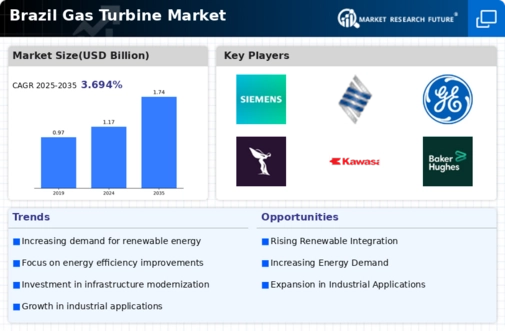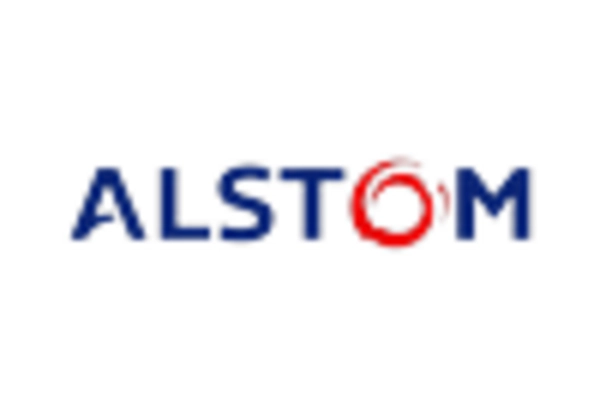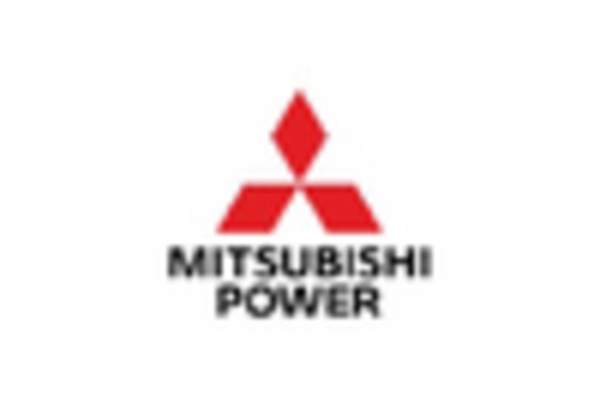Rising Energy Security Concerns
The gas turbine market in Brazil is experiencing a notable surge due to increasing energy security concerns. As the nation seeks to diversify its energy sources, gas turbines are emerging as a reliable option. The Brazilian government has recognized the need for a stable energy supply, particularly in light of fluctuating hydroelectric power generation. This has led to investments in gas turbine technology, which can provide flexible and efficient power generation. In 2025, the gas turbine market is projected to grow by approximately 15%, driven by the demand for energy security and reliability. The gas turbine market is thus positioned to play a crucial role in ensuring Brazil's energy independence and stability.
Growing Demand from Industrial Sectors
The gas turbine market in Brazil is experiencing heightened demand from various industrial sectors, including manufacturing and oil and gas. As industries expand and modernize, the need for reliable and efficient power generation becomes paramount. Gas turbines offer a flexible solution that can meet the varying energy needs of these sectors. In 2025, the gas turbine market is projected to grow by approximately 12%, driven by the increasing energy requirements of industrial operations. This trend underscores the importance of gas turbines in supporting Brazil's economic growth and industrial development.
Shift Towards Cleaner Energy Solutions
The gas turbine market in Brazil is witnessing a shift towards cleaner energy solutions, driven by environmental concerns and regulatory frameworks. The Brazilian government is promoting the use of natural gas as a transitional fuel, which aligns with its commitment to reducing greenhouse gas emissions. This transition is expected to boost the gas turbine market, as these systems are more efficient and produce lower emissions compared to traditional coal-fired plants. By 2025, the gas turbine market could see a growth rate of around 20%, reflecting the increasing preference for cleaner energy technologies.
Investment in Infrastructure Development
Brazil's ongoing investment in infrastructure development is significantly impacting the gas turbine market. The government has allocated substantial funds for energy projects, including the construction of new power plants that utilize gas turbines. This investment is expected to enhance the overall energy capacity of the country, addressing the growing demand for electricity. In 2025, the gas turbine market is anticipated to benefit from an estimated $5 billion investment in energy infrastructure. The gas turbine market is likely to see increased activity as new projects come online, creating opportunities for manufacturers and service providers.
Technological Innovations in Gas Turbines
Technological innovations are playing a pivotal role in shaping the gas turbine market in Brazil. Advances in turbine design, materials, and control systems are enhancing the efficiency and performance of gas turbines. These innovations are not only reducing operational costs but also improving the environmental footprint of gas turbine operations. In 2025, the gas turbine market is expected to benefit from these advancements, with a projected increase in efficiency by up to 10%. This trend indicates a strong potential for growth as industries seek to adopt the latest technologies to remain competitive.
















